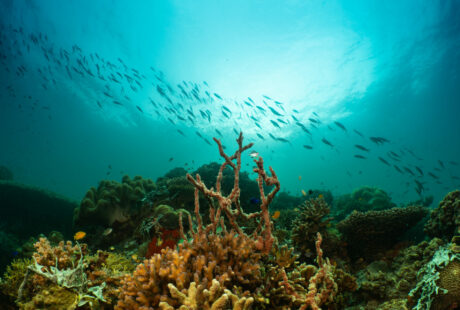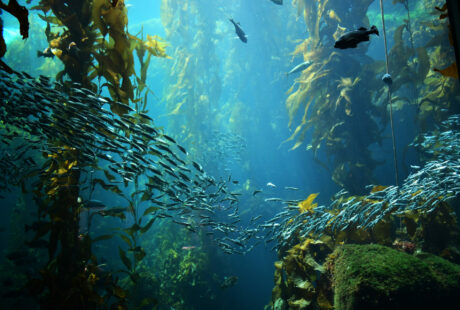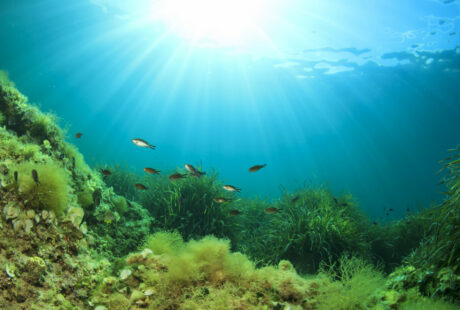With a new European Commission taking office in the coming weeks, the time has come to step up our ambition to save our blue planet. Based on its 30 years’ experience, Seas At Risk provides guidelines on the urgent steps needed to close the ongoing action gaps and move towards making our oceans healthy and more resilient to climate change.
Seas and oceans make up 75% of our planet. The ocean produces more than 50% of the oxygen we breathe, is the main food source for more than 3.5 billion people and is an incredible source of biodiversity, with every living person depending on the ocean to regulate our climate. It has absorbed over 90% of the heat trapped by our carbon dioxide emissions and, as the world’s largest active carbon sink, has sequestered over 30% of the carbon from those emissions, slowing down the warming of our planet.
Healthy, biodiverse and resilient seas and oceans are critical in the fight against the devastating changes that will otherwise result from climate breakdown and the current sixth mass extinction. However, the ocean is threatened by overfishing, habitat destruction, pollution, unsustainable resource extraction and climate change. Ultimately, we can only avoid a full-blown climate meltdown, save the ocean and halt biodiversity decline if we change the ways in which we produce and consume, our lifestyles and our economic thinking. Good public policy must show the way forward. It is clear by now that the ways in which we protect and manage seas and the ocean will determine our future.
As the world’s biggest maritime territory and with almost half of its population living by the sea, the EU has a key role to play in bringing about this change. Our evaluation of EU policy achievements in respect of the marine environment in the past five years showed clear progress, especially in the governance framework established. However, this sits alongside a considerable implementation gap, pointing to the lack of a holistic approach to ocean protection. EU institutions and countries have addressed the threats to the marine environment one by one rather than taking a global view of the impact of our lifestyles on the ocean, particularly its resilience, in the face of impending climate breakdown. The new European Commission will have to work intensively with the European Parliament, the Member States, civil society and other stakeholders to ensure the necessary progress during the next five years.
Priority actions for the European Commission mandate 2019-2024
In response to biodiversity loss and the climate crisis, Seas At Risk urges the European Commission to make the protection of seas and ocean a priority in its upcoming mandate. The new work programme should focus on the following actions:
- Promote ambitious Member State implementation of the Marine Directive to ensure that important steps are taken towards the goal of Good Environmental Status by 2020, consider the legal implications of Member States failing to achieve this goal within the deadline, and protect and enhance the Directive’s level of ambition in case of a revision of the Directive in 2023.
- Complete an ecologically coherent network of marine protected areas with effective management measures in place, based on the full implementation of the Marine Directive and the Birds and Habitats Directives, ensuring a ban on all industrial activities in EU marine Protected areas, including bottom-trawling.
- End overfishing of all harvested stocks by 2020 and allow for the recovery of fish stocks while minimising the impact of fishing on the wider marine environment through full and timely implementation of the Common Fisheries Policy and protect and enhance the level of ambition in its review.
- Strengthen the policy and regulatory frameworks to fight marine litter pollution, with a focus on minimisation of microplastics and enhanced recyclability of fishing gear.
- Stop promoting deep-sea mining to avoid irreversible biodiversity loss and commit instead to a strategy to significantly reduce the demand for metals, in line with Sustainable Development Goal 12.
- Provide leadership at the International Maritime Organization to reduce maritime greenhouse gas emissions and protect the Arctic from polluting black carbon.
- Be an effective leader in international ocean governance by setting a good example and respecting legal commitments at home.
Seas At Risk looks forward to working constructively with the European Commission to deliver the protection that our oceans urgently require and deserve.
Posted on: 16 October 2019



